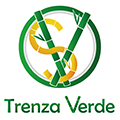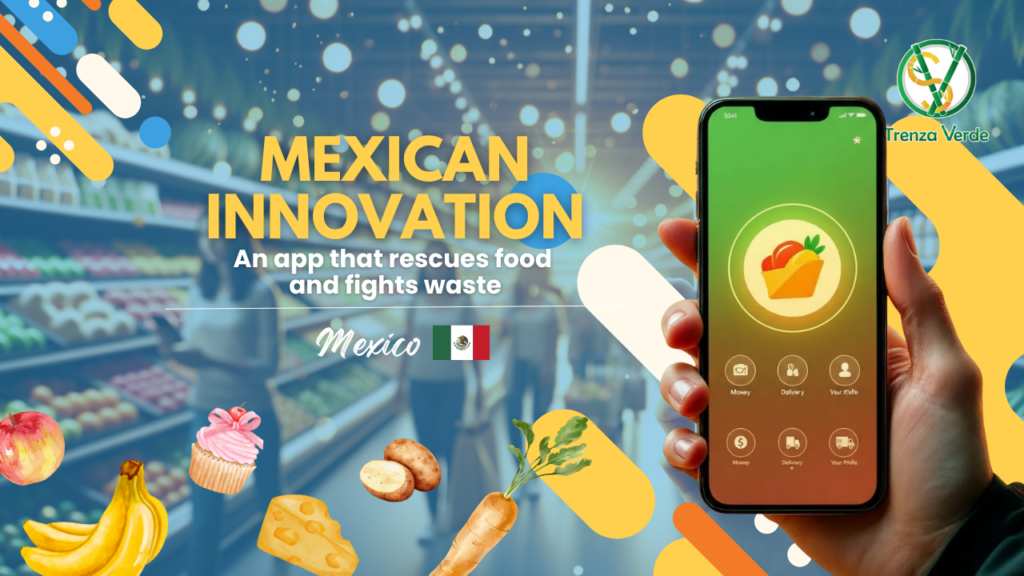Imagine for a moment that every leftover loaf of bread, every slightly bruised piece of fruit, every unsold meal at a café… could find a new purpose. Instead of ending up in the trash, as usually happens, those foods could make their way into the hands of someone who truly needs them—someone who values them, someone who transforms them into hope.
Sounds like a fairy tale, doesn’t it? Well, it’s not anymore. That dream is quietly—but powerfully—coming to life in the streets of Mexico and Argentina. It’s called Cheaf, and behind this simple name lies a story of innovation, empathy, and a whole new way of thinking about consumption.
Because yes, 21st-century technology isn’t just about ordering takeout or sharing photos. It can also help fix the silent injustices around us—like the staggering reality that over 1.3 billion tons of food are wasted every year worldwide, while millions of people struggle with hunger, unsure of how they’ll fill the next plate for their families.
Today, Latin America has its own tech hero in this fight: an app that rescues food, connects local businesses with conscious consumers, and proves that sustainability can be delicious and deeply human.
The idea was born from a simple question: What happens to all the food that doesn’t get sold?
It all started with a very basic concern. The founders of Cheaf noticed that, at the end of each day, thousands of bakeries, restaurants, hotels, and supermarkets faced the same dilemma: throwing away perfectly good food simply because it could no longer be sold at full price.
Meanwhile, across town, countless families were searching for affordable ways to eat well. And then came the question that changed everything:
“What if technology could bring these two worlds together?”
That’s how Cheaf was born—a mobile app that connects businesses with surplus food to people eager to buy it at lower prices (between 50% and 65% off), keeping those meals from ending up in the trash.
But Cheaf is more than just an app—it’s a movement. A community built on the belief that what’s “left over” for some can be a treasure for others.
A Technology with Purpose
At first glance, it might look like just another discount app. But behind it lies something much deeper. Cheaf uses smart technology—geolocation, inventory analysis, and intelligent notifications—to connect users with nearby businesses offering surplus food each day.
This not only helps make the most of available food but also cuts down on greenhouse gas emissions caused by food waste. Every kilo of food saved means less methane released into the atmosphere and less energy wasted in production and transportation.
According to 2025 reports, Cheaf’s expansion has already helped rescue over 5.6 million kilos of food and prevent the emission of more than 14 million kilos of CO₂.
But beyond the numbers, the real impact shines through in the human stories this app continues to inspire—stories of connection, dignity, and hope born from something as simple as sharing what we have.
The Human Side: Stories That Nourish More Than Just the Body
Behind every Cheaf “surprise” package, there’s a story waiting to be told.
There’s Doña Rosa, a mother from Monterrey who found in Cheaf a way to bring quality food home without stretching her budget. There’s Carlos, a college student who now gets his breakfast from local cafés at discounted prices—and by doing so, becomes part of the solution. And then there are the small neighborhood businesses—bakeries, cafés, and local shops—that, thanks to the app, are reducing their losses, gaining new customers, and discovering that their work has a positive impact that goes far beyond the counter.
Cheaf has also created jobs and helped spread a culture of food responsibility. Every user learns—without any moral lectures—that saving food means saving resources, energy, and dignity. Because when you choose a Cheaf package, you’re not just saving money—you’re performing an act of invisible yet powerful solidarity.
A Model with Latin Flavor That’s Spreading Fast
What’s truly exciting is that Cheaf didn’t stop in Mexico. In 2025, it took a bold step forward—crossing borders to Argentina through partnerships with major retail players like Cencosud. Its presence is also expanding across Chile and Colombia, building a growing regional ecosystem dedicated to food rescue.
This growth is no coincidence. Latin America faces a double challenge:
-
On one side, millions of tons of food are lost every year.
-
On the other, millions of people face food insecurity.
Cheaf offers a solution that’s scalable, tech-driven, and deeply human. Its model adapts easily to each country’s context, promoting local networks of responsible consumption and waste reduction.
Now imagine if this idea spread even further—to municipal markets, universities, food fairs, hospitals—all connected through a network that turns surplus food into opportunities.
Opportunities for families with limited budgets to access quality products. Opportunities for communities to enjoy a healthier, more diverse diet. And opportunities for all of us to be part of a movement where nothing—and no one—is left behind.
Beyond Saving Money: A New Awareness Around Consumption
Cheaf is helping us change the way we think about food.
It invites us to ask:
-
Why do we believe that something “imperfect” has no value?
-
Why do we accept throwing food away when others desperately need it?
-
And what if true luxury meant consuming with purpose?
Every purchase through Cheaf is a symbolic act—a declaration that our choices can be more fair, empathetic, and sustainable. The app shows us that solutions to some of the world’s biggest environmental and social challenges might literally be in the palm of our hand. And it reminds us that the most powerful technology is the one that connects hearts, not just data.
Innovation with Measurable—and Emotional—Impact
Cheaf’s model proves that innovation doesn’t have to be cold or distant. Instead of relying only on cutting-edge tools like artificial intelligence or blockchain, its strength lies in a blend of simple technology and deep human meaning.
Its achievements—millions of kilos of food saved, thousands of active users, hundreds of partner businesses—are impressive. But even more valuable is the cultural shift it’s inspiring: a new relationship between producers, businesses, and consumers, built on respect for food—and for the people who grow it, prepare it, and enjoy it.
What We’re Left With
Every time we open the fridge and see something on the verge of going bad, we have a choice: ignore it or take action. Every time we overbuy, throw food away, or walk past a bin full of perfectly edible meals, we’re facing a story we could rewrite.
Cheaf teaches us that technology can be a bridge—between waste and hope, between abundance and need.
It’s more than an app; it’s a philosophy in motion: consuming with purpose.
Because when you decide to rescue a meal, you’re also rescuing a piece of the planet, reducing your footprint, and perhaps—without even realizing it—helping someone have a better day. A plate, a dinner, a simple meal that you might take for granted could mean everything to someone else.
We’d love to hear your thoughts. 💭
How do you think technology like this could grow to better reach and uplift those who need it most—the ones for whom our solidarity can truly make a difference?
Learn more at…
Mexico Business News. (2025, febrero 20). Mexican startup Cheaf expands food rescue app to Argentina. Esta nota cubre la expansión de Cheaf a Argentina y su impacto ambiental y social. https://mexicobusiness.news/
Forbes México. (2024, diciembre 10). Cheaf: la app mexicana que combate el desperdicio de alimentos con tecnología y descuentos. Reportaje que profundiza en el modelo de negocio de Cheaf, su impacto en consumidores y su papel en la economía circular alimentaria. https://www.forbes.com.mx/
FAO. (2023). El costo de la comida desperdiciada: impacto ambiental y económico del desperdicio alimentario.
Organización de las Naciones Unidas para la Alimentación y la Agricultura. Informe global que contextualiza el problema del desperdicio de alimentos y refuerza la relevancia de iniciativas como Cheaf. https://www.fao.org
BBC News Mundo. (2025, enero 14). La app latinoamericana que transforma excedentes de comida en oportunidades de ahorro y sostenibilidad. Artículo de alcance internacional que explica cómo las soluciones tecnológicas están reduciendo el desperdicio alimentario en la región. https://www.bbc.com/mundo

